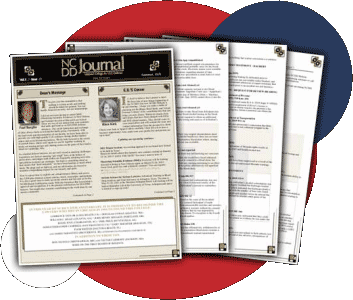- The ABA’s Concise Guide to Lawyer Specialty Certification
- Benefits to Become Board Certified - ABA Video
- Board Certified Members
- How to Become Board Certified in DUI Defense Law
- Apply for Certification
- Apply for Re-Certification Renewal
- Board Certified Senior Specialist
- Rules Governing Board Certification
- Preparing for the Exam
Harsher Penalties for DUIs: How to Travel with a Conviction
Posted on June 29, 2019 in Uncategorized

Bill C-46 & Its Significant Impact on Canadian Admissibility
Bill C-46 amends the Canadian Criminal Code to create harsher consequences for impaired driving as well as new offences for driving after consuming drugs, particularly marijuana. Approved on June 21, 2018 and in effect December 2018, the Bill also grants police greater powers to test drivers for impairment and increases the maximum penalty for a DUI from 5 to 10 years. Impaired driving will soon be considered "serious criminality", raising the difficulty of overcoming inadmissibility to Canada. As a result, foreign nationals and temporary residents who could previously visit Canada may now be denied entry, and permanent residents may face deportation. To boost chances of entry to Canada, it will be increasingly valuable to avoid offences resulting in inadmissibility, especially by pleading down a DUI to a lesser offence.
Current situation?
When determining inadmissibility, Canadian law categorizes offences as either "criminality" or "serious criminality". Serious criminality constitutes an offence in Canada with a maximum punishment of at least 10 years, or an equivalent offence abroad. If convicted in Canada, an offender serving 6 or more months in prison also falls under the serious criminality category.
At the moment, impaired or dangerous driving is considered general "criminality", with a maximum penalty of 5 years. Individuals with a conviction can apply for Criminal Rehabilitation 5 years after completing their sentence, or those with a single DUI can be deemed rehabilitated after 10 years. Rehabilitation effectively resolves issues of inadmissibility to Canada.
What will change?
The legislation adds new offences to the Criminal Code by criminalizing driving with a certain quantity of THC (the main psychoactive component of cannabis) in the bloodstream. Since marijuana will soon become legal across Canada with Bill C-45, the Cannabis Act, there is now a clear need to regulate marijuana consumption.
Bill C-46 also enacts harsher punishments for existing offences, increasing the maximum penalty from 5 to 10 years for impaired, prohibited, and dangerous driving, as well as for fleeing from police, leaving after an accident and refusing to take a breathalyzer. These offences will escalate to the "serious criminality" category.
For the first time ever in Canada, police will be able to conduct random roadside breath testing for alcohol impairment. Police may also use new screening tools to test drivers' saliva or blood for drugs in their system, however, drug tests may only be conducted under reasonable suspicion of drug use.
Implications for travel to Canada?
Following Bill C-46 taking effect in December, not only will the tougher penalties affect consequent domestic and international convictions, but also temporary and permanent residents with prior convictions. To obtain a Temporary Resident Permit to enter Canada, foreign nationals must present a significant reason for travelling. Now classified as serious criminality, DUIs will present a larger roadblock to entry as they will likely require a much more significant reason for travel. Moreover, foreign nationals and temporary residents with a single DUI conviction will lose eligibility to be deemed rehabilitated after 10 years. They may still apply for Criminal Rehabilitation 5 years after completing their sentence, but will face higher scrutiny of their application due to the serious criminality status of their offence. For those with a conviction over 10 years ago who are currently deemed rehabilitated, it is unclear whether they will lose this status and if their admissibility will be affected.
What can you do?
Prior to Conviction
Pleading a Lesser Offence
- To increase chances of admissibility, attempt to plead down the offence to avoid "serious criminality" classification (avoid offences involving impairment, recklessness or bodily injury)
- Best case: plead down to an offence that avoids "criminality" category altogether
Legal Opinion Letter
- At FWCanada, we can provide a letter of our legal opinion on your client's admissibility to present to a judge or DA, to help plead down charges or support an ADR program
- If inadmissibility is removed, we can provide a second letter to explain the change in status to an immigration official at port-of-entry
After a Conviction
Temporary Resident Permit
Temporarily grants entry to Canada
- At the discretion of Canadian Immigration who decides whether granting admission is worthwhile to Canada
- Application can be completed at a Canadian visa office or at the port-of-entry, however it is best to prepare a well-documented application and apply as early as possible prior to required date of entry
Criminal Rehabilitation
Permanently clears record according to the Canadian government and removes inadmissibility
- Eligible to apply 5 years after completing sentence for the conviction, this includes satisfying all conditions of the sentence such as fines and probation
Expungement
- Process in the United States whereby criminal records are sealed (expunged) or dismissed, removing the offence from an individual's record
- Offered in some states; contact a local attorney for eligibility conditions
At FWCanada, we are happy to offer free consultation to promptly provide honest assessment of your client's case and chances of success. As one of the leading immigration law firms in the country specializing in criminal inadmissibility, we have extensive experience handling a wide range of cases. We prioritize detailed review of each client's case to optimise application approval.
Please call on our toll free number: 1.855.316.3555 to ask all your burning questions and remedy confusions, because providing honest and accurate advice is our ethos.
Find an Attorney
Enter your city, state, or Zip code below to locate a qualified attorney who has demonstrated a commitment to defend those accused of DUI and related crimes.








